Cardiovascular System
All information about "Cardiovascular System" and the related magazine articles can be found here.
Our articles are written clearly and link to scientific studies where relevant. This is how we meet our own standards: we regularly deliver new, high-quality content for you—free of charge, no sign-up required, with the highest possible benefit to you.

Myo-inositol - how does it affect us?
Hormonal imbalance can have a major impact on many processes. What exactly does it mean when our own production decreases and how can I support my health in this regard?

Calcium or calcium - the important thing is to take it!
Find out what this important mineral is involved in in the body and which is the better form of calcium here!
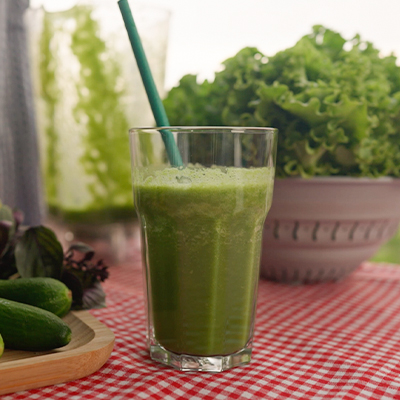
How a detox works
The human body works around the clock to eliminate harmful substances and toxins. But when there are too many toxins in the system, it needs help.
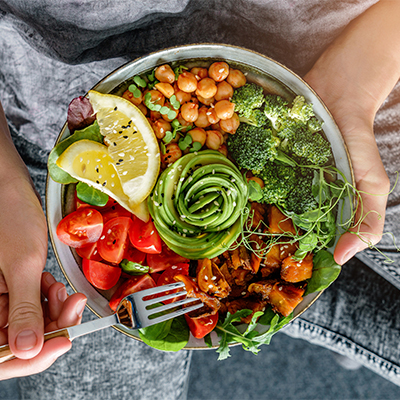
Alkaline diet
The pH of our organs plays an important role in our health. But how does our diet affect our body's acid-base balance?

How can I tell if I have a vitamin deficiency?
Tired, exhausted, aching limbs? A vitamin deficiency can take many forms, but is usually easy to treat. Find out what to look out for.
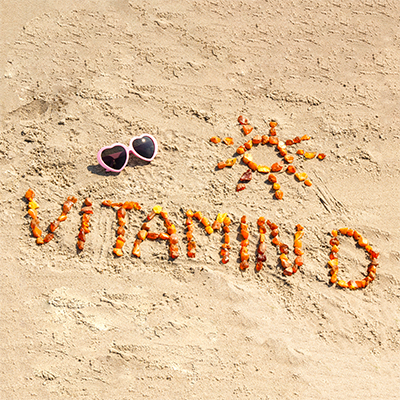
Often in short supply in winter - Vitamin D
Vitamin D is a real all-rounder when it comes to health: it ensures healthy bones and is involved in many processes in the human body.
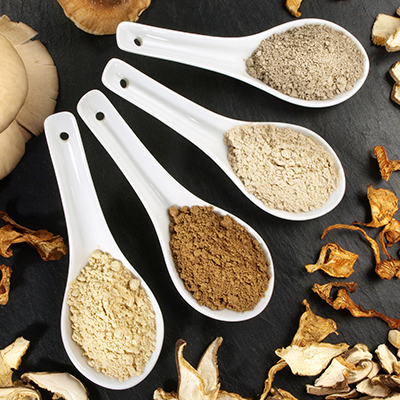
Still unknown to many - medicinal mushrooms
Many people in Europe are still unfamiliar with the use of so-called medicinal mushrooms, but these mushrooms are an integral part of many traditional diets. Find out what they are called and what powers they have.

When the immune system needs a boost
Our immune system is usually good at fending off invaders. But how can we strengthen it so that it continues to work well under high levels of stress?
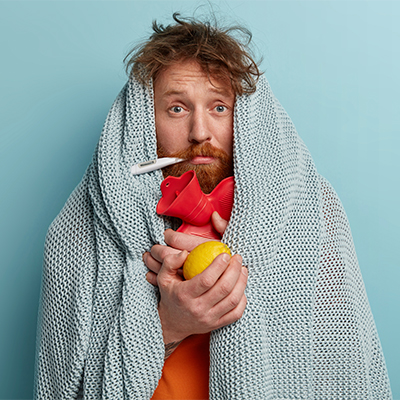
Get through the autumn and winter safely!
Colds are hard on the mind and body. Read here to find out how you can protect yourself against colds and give your body extra support.

Zinc, an essential trace element
Zinc is involved in many processes in the human body. Read here to find out why it is so important for us and what vegetarians/vegans should look out for.

Vitamins for hair loss
Biotin, vitamin D, zinc and selenium: When certain nutrients are lacking, hair suffers. Hair health can be supported by the right diet

Alternative treatments for bladder infections
Urinary tract infections are common. In most cases, the infection can be cured easily, and some home remedies can help the healing process.

The effects of the yam root
Yam is a staple food around the world. The yam is a staple food in many parts of the world, similar to the potato.
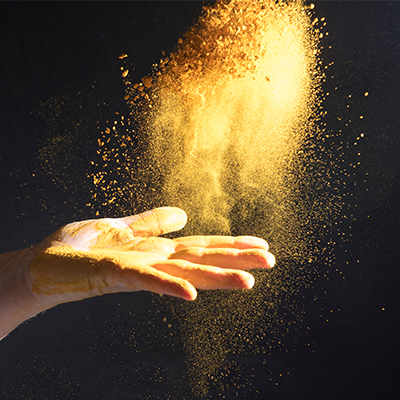
How curcumin works
Turmeric owes its bright yellow colour to the plant compound curcumin. But curcumin is much more than that.

Women in competitive sport
The effect of oestrogen and progesterone on training success has long been underestimated. The definable phases of muscle building, increased risk of injury and muscle recovery can now be used to create a successful training plan.
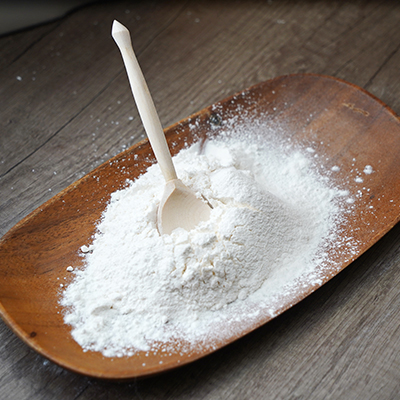
How galactose works
This simple sugar works differently to glucose and therefore has special properties that make it particularly interesting for diabetics. Find out more now

To do this, the body needs the amino acid L-tyrosine.
L-tyrosine is involved in many processes in the body, including the production of the hormones dopamine and adrenaline.
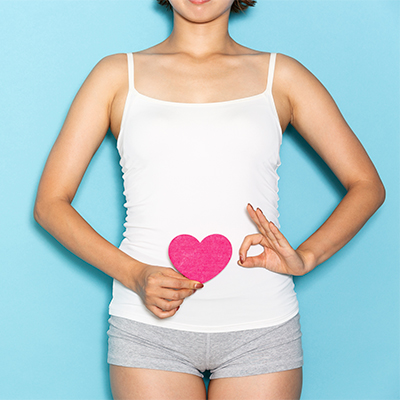
How to keep your gut flora healthy
What makes a healthy gut? And how can gut bacteria and the right diet help you stay healthy? Here are the answers to the most important questions about a healthy gut.

Vitamins for beautiful skin
Vitamins play an important role in our health - and our appearance. With the right nutrients, you can make your skin glow.
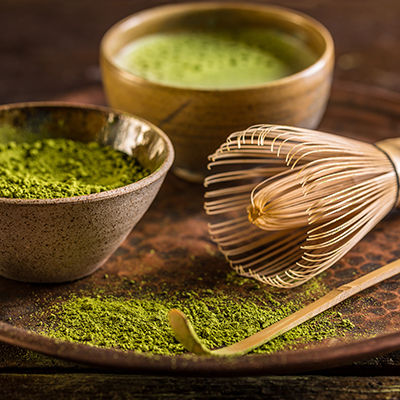
Green tea is so healthy
Green tea is considered healthy and is also said to help with weight loss. So it's not surprising that there are now many dietary supplements containing green tea extract. What is behind these supposed effects?

What is Astragalus extract?
Astragalus root extract has been used in traditional Chinese medicine for thousands of years.

What makes collagen special
Collagen is best known for its role in the connective tissue of the skin. Skincare products or supplements containing collagen are often advertised as having an "anti-ageing" effect. But the protein can do more.
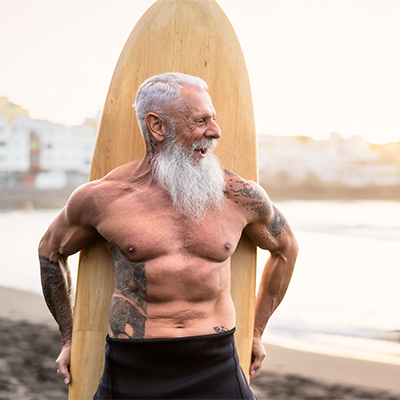
What is L-Arginine?
L-Arginine is a term that is often used in connection with weight training supplements. Read on to find out what it is and how it can benefit athletes in particular.
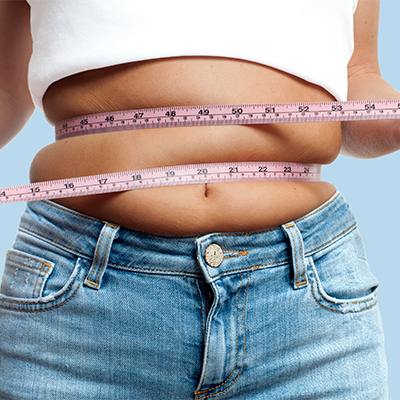
Can vitamin B12 help you lose weight?
Vitamin B12 is involved in many metabolic processes in the human body. Many people find that weight gain and B12 deficiency often occur together. Why is this the case?
Cardiovascular system: our body in motion
Have you ever wondered how your body functions day after day without you consciously having to think about it? Our cardiovascular system takes care of that. It is the transport system of our body and is responsible for supplying every single cell with essential nutrients and oxygen. If you want to understand exactly how this vital system works, you will find answers here.
The heart is a tireless motor
At the center of the cardiovascular system is the heart, a muscle the size of a fist that tirelessly pumps blood throughout our body. Let's take a closer look at how this organ works.
Structure of the heart
The heart has four chambers: the right atrium, the right ventricle, the left atrium and the left ventricle.
These four chambers work together to pump blood throughout the body: the atria draw in blood while the ventricles pump it out. Heart valves, which act like one-way streets to prevent blood from flowing backwards, are located between the atria and the chambers and at the exit of the chambers.
How does the heart work?
The heart works like a highly efficient double pump. The right side of the heart pumps deoxygenated blood to the lungs, while the left side pumps oxygen-rich blood to the rest of the body. With each heartbeat, the heart chambers contract and pump blood into the arteries. They then relax and refill with blood from the atria.
This process is repeated about 60 to 80 times per minute at rest, but can increase to up to 200 beats per minute during physical exertion. The heart constantly adjusts its output to the needs of the body and can significantly increase the amount of blood pumped when needed.
The circulatory system as a transportation system
The circulatory system is a closed system of blood vessels that runs through the entire body. It can be divided into two main circuits: the systemic circulation (also called the great circulation) and the pulmonary circulation (also called the small circulation).
Great circle: supply of the body
The body's circulatory system begins in the left ventricle of the heart. From here, oxygen-rich blood is pumped through the aorta, the largest artery in our body, to all organs and tissues. The aorta branches out into smaller and smaller arteries, which eventually merge into the finest blood vessels, the capillaries.
In the capillaries, oxygen and nutrients are exchanged for carbon dioxide and waste products. The walls of the capillaries are so thin that oxygen and nutrients can easily diffuse into the surrounding tissue.
At the same time, the capillaries absorb carbon dioxide and other waste products from the cells. The now oxygen-poor blood flows through small veins into ever larger veins and finally back to the right atrium of the heart. From there it enters the right ventricle to start the cycle again.
Small circulation: oxygen uptake in the lungs
The pulmonary circulation, also known as the small circulation, begins in the right ventricle of the heart. From here, the deoxygenated blood is pumped into the pulmonary arteries. These branch out into a fine network of capillaries in the lungs, surrounding the pulmonary alveoli.
In the alveoli, the gas exchange takes place: the blood releases carbon dioxide and absorbs fresh oxygen. This process occurs by diffusion – the oxygen from the inhaled air migrates into the blood, while the carbon dioxide passes from the blood into the exhaled air.
The now oxygen-rich blood can flow back to the left atrium of the heart via the pulmonary veins. From there, it enters the left ventricle to be pumped back into the great circulation.
The direction of blood flow
Our blood takes a specific path through our body:
- Oxygen-rich blood leaves the left ventricle.
- It flows through the aorta and arteries throughout the body.
- The exchange of substances takes place in the capillaries.
- Deoxygenated blood collects in the veins.
- It enters the right atrium and the right ventricle.
- From there it is pumped into the lungs.
- In the lungs, it absorbs oxygen and releases carbon dioxide.
- The oxygen-rich blood returns to the left atrium.
- The cycle begins again.
The importance of blood pressure
Blood pressure plays a crucial role in the functioning of the cardiovascular system. It ensures that blood flows through the blood vessels at a sufficiently high pressure to reach all organs. Blood pressure is created by the pumping force of the heart and the resistance of the blood vessels.
With each heartbeat, two pressure values are created:
- Systolic pressure: this occurs when the heart contracts and pumps blood into the arteries.
- Diastolic pressure: this occurs when the heart relaxes and refills with blood.
Normal blood pressure is around 120/80 mmHg (millimeters of mercury). However, high blood pressure can damage blood vessels and lead to cardiovascular disease.
Blood vessels: a complex network
Blood vessels form an elaborate transportation system that permeates the entire body. There are three main types of blood vessels:
- Arteries: They carry oxygen-rich blood away from the heart to organs and tissues. Arteries have thick, elastic walls to withstand the high pressure of the blood pumped by the heart.
- Veins: These carry deoxygenated blood back to the heart. Veins have thinner walls than arteries and contain valves that prevent the blood from flowing backwards.
- Capillaries: These are the smallest blood vessels. Their paper-thin walls allow the exchange of oxygen, nutrients and waste products between blood and tissue.
Interesting facts about the cardiovascular system
- At rest, an adult's heart beats about 100,000 times a day.
- Over the course of an average lifetime, the heart beats about 3 billion times.
- The total length of all blood vessels in the human body is about 100,000 kilometers. This length is more than twice the circumference of the earth.
- The cardiovascular system pumps the entire amount of blood, about 5 to 6 liters, through the body once every minute.
- The capillaries are so narrow that red blood cells can only pass through them in a single row.
Cardiovascular diseases are the most common form of illness.
Unfortunately, cardiovascular diseases are among the most common health problems in our modern society. They are the leading cause of death worldwide.
The most common cardiovascular diseases include:
- Hypertension: A chronic increase in blood pressure in the arteries is a risk factor for further cardiovascular diseases.
- Coronary heart disease: A narrowing of the coronary arteries that leads to reduced blood flow in the heart muscle.
- Heart attack: An acute occlusion of a coronary vessel, leading to an undersupply and possible damage of the heart muscle tissue.
- Stroke: A sudden interruption of the blood supply to the brain, which can lead to neurological deficits.
- Heart failure: A diminished pumping function of the heart, leading to an insufficient supply of blood and oxygen to the body.
Our bowel health also plays a crucial role in our general well-being. It should therefore not be neglected. A strong immune system is equally important.
Risk factors for cardiovascular disease
There are a number of risk factors that can lead to cardiovascular disease:
- Hypertension: Chronically elevated blood pressure puts sustained strain on blood vessels and organs.
- Smoking: This harmful habit damages blood vessels and significantly increases the risk of cardiovascular disease.
- Obesity: Excess body fat puts additional pressure on the cardiovascular system.
- Lack of exercise: A lack of physical activity has a long-term negative impact on heart health.
- Unhealthy diet: A diet high in saturated fats and sugar promotes the development of cardiovascular diseases.
- Diabetes mellitus: This metabolic disorder can damage blood vessels and significantly increase the risk of cardiovascular disease.
- High cholesterol levels: High blood cholesterol levels promote the formation of deposits in blood vessels.
- Stress: Stress: Prolonged mental and physical stress can have a negative effect on the cardiovascular system. You should therefore try to avoid stressful situations as much as possible.
- Genetic predisposition: Hereditary predispositions can increase an individual's risk of developing certain cardiovascular diseases [1].
Preventing cardiovascular disease: how does it work?
How can you support your cardiovascular system? There are numerous ways to strengthen your cardiovascular system and keep it healthy. One of the most important things you can do is exercise regularly. Moderate physical activity strengthens the heart and improves blood flow. Experts recommend at least 150 minutes of moderate or 75 minutes of vigorous exercise per week. Suitable activities include walking, swimming, cycling and dancing.
A balanced diet is equally important. A diet rich in fruit, vegetables and whole grain products helps to keep your blood vessels healthy. Reduce your consumption of saturated fats, sugar and salt. A vitamin K2 deficiency can also have a negative effect on our cardiovascular system.
Because stress can have a negative effect on the cardiovascular system, you should make sure you have an effective stress management strategy. Good ways of reducing stress include meditation, yoga or regular relaxation exercises. Getting enough sleep also plays an important role in the regeneration of the entire body, including the cardiovascular system. Aim for 7-9 hours of sleep per night.
You should also have your blood pressure and other relevant values checked regularly by your doctor. The early detection and treatment of risk factors can prevent cardiovascular diseases.
And very importantly: if you smoke, giving up is one of the most effective measures for your heart health. Smoking damages the blood vessels and significantly increases the risk of cardiovascular disease. Moderation is also the order of the day when it comes to alcohol consumption, as excessive consumption can increase blood pressure and damage the heart. Finally, weight control plays an important role. Excess weight puts additional strain on the cardiovascular system. For example, have you ever tried losing weight with amino acids?
By incorporating these recommendations into your daily routine, you can actively help to support your cardiovascular system and improve your overall health [2].
The future of cardiovascular medicine
Research is constantly advancing. The future of cardiovascular medicine also promises significant progress in various areas:
Personalized medicine: genetic analysis can be used to tailor treatments to individual patients. These customized therapies enable more precise and effective treatment by taking into account the specific genetic characteristics and risk factors of each patient.
New drugs: innovative active ingredients promise better treatment options for cardiovascular diseases. Researchers are developing targeted drugs that influence specific molecular mechanisms, thus enabling more effective therapy with fewer side effects [3].
Minimally invasive procedures: Modern techniques enable less invasive surgery on the heart and blood vessels. These procedures not only reduce surgical trauma and recovery time, but also open up treatment options for patients who are not candidates for conventional surgery.
Artificial intelligence: AI systems can help identify risks early and optimize treatments. By analyzing large amounts of data, AI algorithms can detect subtle patterns and assist doctors with diagnosis and treatment planning, leading to improved patient care.
Regenerative medicine: Researchers are working on methods to regenerate or replace damaged heart tissue. These groundbreaking approaches, such as the use of stem cells or cultured tissue, could revolutionize the treatment of heart attacks and chronic heart failure in the future [4].
Our cardiovascular system: an amazing system
The cardiovascular system is truly a wonder of nature. It works tirelessly to supply every cell in our body with essential nutrients. Unfortunately, our cardiovascular system is also susceptible to a variety of diseases.
Fortunately, we can prevent cardiovascular disease with fairly simple measures. This is particularly effective if we understand how it works. Then we can consciously support it and thus maintain our health in the long term.
Current research on cardiovascular diseases also promises some positive developments and advances in treatment options for the future. Nevertheless, we should not underestimate what we can do for our health ourselves with fairly simple means.
So, what are you waiting for?
Sources
[1] https://pubmed.ncbi.nlm.nih.gov/31112654/
[2] https://pubmed.ncbi.nlm.nih.gov/34922952/
[3] https://pubmed.ncbi.nlm.nih.gov/35879138/
[4] https://dzhk.de/newsroom/aktuelles/news/artikel/stammzellen-fuer-das-herz-neue-methoden-zur-regeneration-von-herzmuskelgewebe
